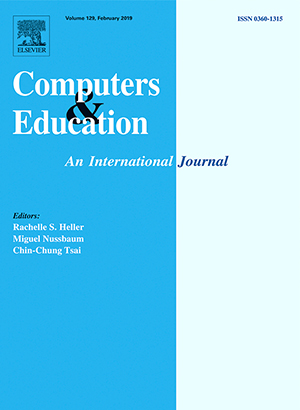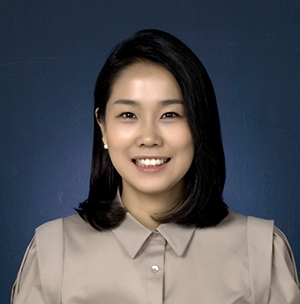본문
Learning Engagement and Persistence in Massive Open Online Courses (MOOCS)

By Prof. Jeongmin Lee (jeongmin@ewha.ac.kr)
Department of Educational Technology
Professor Jeongmin Lee's most recent publication, "Learning Engagement and Persistence in Massive Open Online Courses" in Computers and Education, explores ways to facilitate learning engagement and persistence in MOOCs.
As part of various attempts to popularize higher education, Massive Open Online Courses (MOOCs) have attracted significant attention as a way to further expand higher education opportunities and improve the quality of instructional methods. MOOCs comprise large-scale online learning environments, which allow learners to enroll in high-quality courses offered by universities around the world with no restriction.
MOOCs have become more widespread in both domestic and international education. World-class universities have joined the MOOC movement, and various MOOCs have been launched across nations and subjects. With such intense interest from the global community, the Korean government launched a Korean MOOC called K-MOOC. There were ten participating universities in October 2015, with increasing numbers of universities and courses on offer (South Korea Ministry of Education [MoE], 2016). Despite the rising interest and expectations toward MOOCs, there are doubts about their efficacy in terms of the intended outcomes such as learning engagement and persistence (Hew & Cheung, 2014). In general, MOOC participation rates significantly decline as the courses progress, and MOOC completion rates are typically very low at 3% to 6%. Considering that developing and operating MOOCs requires much more monetary investment than traditional courses (Hollands & Tirthali, 2014), these low learning persistence statistics present obstacles that weaken MOOCs’ sustainability and effectiveness.
Therefore, this study synthesized individual learning components—students, instructors, and learning support systems—to propose a comprehensive model that explains learning engagement and persistence in MOOCs. To explore factors that affect learning engagement and persistence, we divided these exogenous variables into learners' perceptions of themselves, their instructors, and the MOOC learning support system. We selected academic self-efficacy as the learner variable, teaching presence as the instructor variable, and perceived usefulness and ease of use as the support system variables. We aimed to verify structural relationships between academic self-efficacy, teaching presence, perceived usefulness, perceived ease of use, learning engagement, and learning persistence. The main findings and implications are as follows:
First, the results showed that academic self-efficacy had a significant direct effect on learning engagement in MOOCs. This suggests that learners need a facilitation strategy such as self-directed learning to encourage academic self-efficacy in order to be more actively involved in learning through MOOCs.
Second, teaching presence had a significant effect on MOOC learning engagement as well. To increase learners' participation in MOOCs, instructor-centered learning activities should focus on supporting learners with feedback and providing well-organized learning contents. Although MOOC courses are highly voluntary and self-directed, the teacher's role remains essential. If learners do not experience teacher presence during the course, their participation and involvement will become lower and the probability of dropping out will become higher. Therefore, MOOC instructors should pay attention to course design in order to provide participants with sufficient opportunities to interact with other learners and feel a sense of belonging to the class.
Third, learning engagement was significantly influenced by learners' perceived usefulness while using the MOOC learning support system. This suggests that students in MOOCs become more involved as they participate in the learning process, learn the relative advantages of the MOOC learning support system, and more actively embrace innovation. In contrast, perceived ease of use while using the MOOC learning support system did not have a significant effect on learning engagement, because the participants were relatively young in their 20s on average, which meant that the extent to which the platform was easy to use may not be an important factor for the participants to engage in MOOC courses. However, learners' perceived ease of using MOOCs had a direct effect on their learning persistence. This suggests that perceived ease of use is critical in providing ample opportunities to identify learners' usage patterns and expectations in relation to a MOOC support system.
Finally, learning engagement in MOOCs also showed a direct effect on learning persistence. In addition, learning engagement played a major mediating role between academic self-efficacy and learning persistence and between perceived usefulness and learning persistence. To encourage learning engagement, it is essential to design MOOCs by considering external motivations, such as digital badges (Chauhan, 2014) and collaborative learning with small groups of students (Veletsianos et al., 2015). In addition, to facilitate both learning engagement and learning persistence in MOOCs, the learner, instructor, and learning support system variables should be considered for the instructional design of these courses.
Today, MOOCs, especially the K-MOOC, are expanding opportunities for learning by providing lectures by prestigious professors in a variety of academic fields to participants of all ages and occupations, such as high school students, workers, and the self-employed, as well as university students. With this background, this study sought to examine and provide an understanding of methods to facilitate learning engagement and persistence in MOOC courses, in consideration of the effects of student perceptions of themselves, instructors, and learning support systems. Through this discussion, we expected to provide basic design strategies to effectively facilitate MOOC learning beyond the introduction and diffusion stages. These research findings can provide practical suggestions to support diverse students through the complex features of MOOCs.
Professor Lee continues to conduct research on engagement and persistence in MOOCs and is currently conducting multiple comparative studies with MOOCs in Korea, China, Turkey and the United States. Given that MOOC learner behavior and quality experience vary in each culture country, it is necessary to enhance the understanding of learners from various cultures and design an environment sensitive and reflective to specific target learners in order to ensure an effective and engaging learing experience. This line of research is clearly fundamental to the design and delivery of MOOCs, which remain new with high potential for further advancement.

* Related Article
Yeonji Jung, Jeongmin Lee, Learning Engagement and Persistence in Massive Open Online Courses (MOOCS), Computers & Education, 122, July 2018, 9-22.
* References
Chauhan, A., (2014), Massive open online courses (MOOCs): Emerging trends in assessment and accreditation, Digital Education Review, 25, 7-17.
Hew, K. F., & Cheung, W. S., (2014), Students' and instructors' use of massive open online courses (MOOCs): Motivations and challenges, Educational Research Review, 12, 45-58.
Hollands, F. M., & Tirthali, D., (2014), MOOCs: Expectations and reality. Full report Center for Benefit-Cost Studies of Education, Teachers College, Columbia University. NY.
Veletsianos, G., Collier, A., & Schneider, E., (2015), Digging deeper into learners' experiences in MOOCs: Participation in social networks outside of MOOCs, notetaking and contexts surrounding content consumption, British Journal of Educational Technology, 46(3), 570-587













